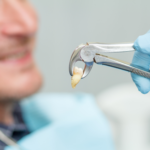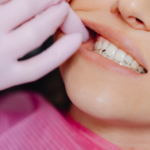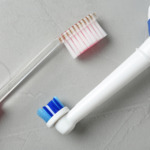Thumb sucking is a common and often comforting habit for many babies and young children. It’s a natural reflex that can help them feel secure and soothed, especially during times of stress or tiredness. While it’s a completely normal part of development, many parents wonder: When does thumb sucking become a problem, and what are its potential effects on a child’s teeth?
The “Why” Behind Thumb Sucking
Babies are born with a sucking reflex, and for good reason! It’s essential for feeding. This reflex often extends to their fingers and thumbs, which they may discover in the womb or shortly after birth. Thumb sucking can provide a sense of security, helping a child self-soothe when they’re anxious, tired, or just need a little comfort. For many, the habit naturally fades as they grow and find other ways to cope.
The Dental Connection: When to Be Concerned
For most young children, occasional thumb sucking is harmless. The American Dental Association (ADA) and other experts generally agree that the habit is unlikely to cause dental issues before the permanent teeth start to come in, usually around ages 4 to 6.
However, the longer the habit persists, the greater the risk of dental problems. The key factor is not just the duration but also how intensely a child sucks their thumb. A child who passively rests their thumb in their mouth is less likely to have issues than one who sucks aggressively.
So, what are the potential effects of prolonged or aggressive thumb sucking?
- Changes in Jaw and Palate Shape: The consistent pressure from a thumb can alter the shape of a child’s jaw and the roof of their mouth (palate). This can lead to a narrow upper jaw.
- Misaligned Teeth: Thumb sucking can push the upper front teeth outwards and the lower front teeth inwards. This can create an “open bite,” where the top and bottom teeth don’t meet properly when the mouth is closed.
- Speech Issues: An open bite or altered palate can affect a child’s ability to form certain sounds. This can lead to lisping or other speech impediments.
- Skin Problems: In some cases, constant moisture can cause skin issues on the thumb itself, leading to dryness or chapping.
When to Step In: Tips for Parents
The goal is not to scare a child but to gently encourage them to stop the habit, especially as they get older. Here are some strategies that can help:
- Praise and Positive Reinforcement: Instead of scolding, praise your child when they are not sucking their thumb. Offer rewards like a sticker chart or a special activity.
- Identify the Trigger: Is your child sucking their thumb when they’re tired, stressed, or bored? Try offering an alternative like a cuddle, a favorite blanket, or a fidget toy.
- Talk to Your Child: For older children, a simple, gentle conversation can be effective. Explain why it’s important to stop the habit, focusing on their teeth and a healthy smile.
- Involve Your Dentist: Your pediatric dentist is your best partner in this journey. They can assess the situation and offer advice or solutions. They may suggest a dental appliance, like a thumb crib or habit breaker, to make the habit less comfortable. These are typically a last resort for persistent cases.
The Bottom Line
Thumb sucking is a normal childhood habit that most children outgrow on their own. By keeping an eye on it and consulting with your dentist, you can ensure that your child’s oral health stays on track. Remember, a supportive, non-critical approach is key to helping them kick the habit and achieve a healthy, happy smile.








